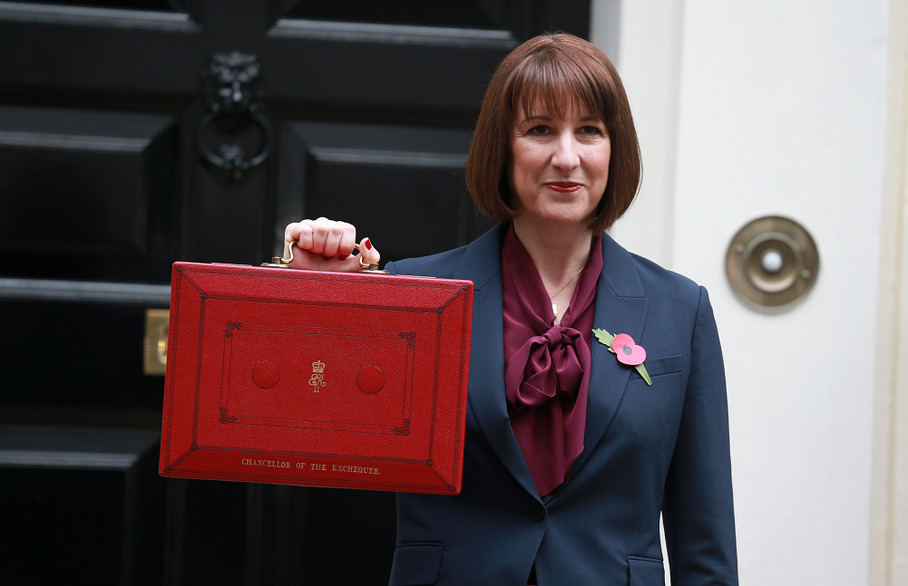
The much anticipated Autumn Budget was delivered on Wednesday, and a range of changes have been announced that will have an impact on the New Homes industry and across the wider housing sector. While the mixed policies suggest a blend of outcomes, there are reasons for optimism about the long-term future of housing, despite potential short-term challenges.
Funding Commitment
The government made strong commitments on coming into power to address the housing supply shortage and get 1.5 million new homes built over the next 5 years. So it was key that they supported this pledge with the funding needed. Chancellor Rachel Reeves announced that funding to housing would increase to more than £5 billion which does show significant financial commitment from the government. One key part of this funding is an announced £3 billion of additional support for SMEs and the build to rent sector in the form of housing guarantee schemes, this should be a particular benefit to smaller house builders and we look forward to hearing more about what that entails.

Boosting Delivery
Another stream of funding for the sector will be £47 million to support the delivery of 28,000 homes currently blocked by river pollution. This indirect action is a sign that the government is willing to look at the wider issues which delay the progress of new homes development. In addition, the pledge to reform planning and recruit further planning staff was reiterated; with £46 million of additional funding to support the recruitment and training of 300 new planners, accelerate work on large sites that are stuck in the system, and increase local planning capacity. This is a strong start in the action desperately needed for the planning system to be as effective as the sector needs, and we look forward to hearing more ahead of the Planning and Infrastructure Bill expected next year.
Stamp Duty
Stamp Duty has been a talking point in the sector since the Chancellor’s speech, but what impact could it have? The immediate change is the Stamp Duty paid on second homes, which includes homes bought by buy-to-let investors, with the rate rising from 3% to 5%. Whilst the Treasury estimates this will generate an additional 130,000 main homes transactions over the next 5 years, it could see a drop in those investing in the sector. Some research suggested that purchases of a second home could account for about 22% of 2023 property transactions, meaning this could put a dent in market growth. A further change to Stamp Duty will come in accordance with the existing plan for thresholds to revert back to the 2022 levels in March, this will effectively increase the amount of stamp duty paid, and increase the number of first time buyers who will need to pay it. Overall, changes to Stamp Duty will not be widely welcomed by potential buyers, and could set back the market improvement we have begun to see.

Wider Implications
Almost all the budget can be expected to have an indirect impact on the new homes and housing sector, but there’s some specific areas to take note of.
Firstly, the headline grabbing increase in employer National Insurance payments, as well as the rise in minimum wage, will impact on business in the housing sector as much as any elsewhere, which could have an impact on the recruitment of the skills needed to get homes built. Although, smaller businesses may take heart that the employment allowance will be increased from £5,000 to £10,500, and the £100,000 cap removed so some small companies will be paying less.
On a more positive note, the government announced significant infrastructure investment, that could have a positive impact for house builders. Upgrades to the railway network, such as the Transpennine route between York and Manchester, and the East West rail between Milton Keynes and Cambridge, could increase the desirability of new homes in locations along the route. Whilst investment in schools and the NHS will also help to improve areas across the country and boost their local property markets.
Shaun Peart, Managing Director at LSL Land & New Homes had this to say:
“As we begin to see the governments housebuilding commitments materialise, it’s good to see they will provide the financial investment necessary to realise these important goals. Changes to Stamp Duty will be a harder pill for the housing sector to swallow, and we might see the result in the housing market across the next few months.”
The budget signals a transformative period under the new government, bringing both opportunities and challenges. While the funding commitments and infrastructure investments are encouraging for the long-term health of the housing sector, the increased Stamp Duty may dampen recent market improvements. As we move forward, the true impact of these measures will unfold, underscoring the importance of staying informed and adaptable in this evolving landscape.
In need of an expert housing sector guide? Get in touch with LSL Land & New Homes, for help from sourcing development opportunities to sales and marketing of new homes.
Sources
-
The Standard – Budget 2024: all the property announcements from Chancellor Rachel Reeves
-
Property Mark - Budget aims to unlock housing with investment in affordable homes
-
HM Treasury - Autumn Budget 2024
-
GOV.UK - Chancellor chooses a Budget to rebuild Britain
-
Bird & Co. - Home Buying Statistics 2023: Stagnant Number of First Time Buyers Throughout Year

Our experienced land & new homes experts can provide you with the knowledge & expertise that you need.



